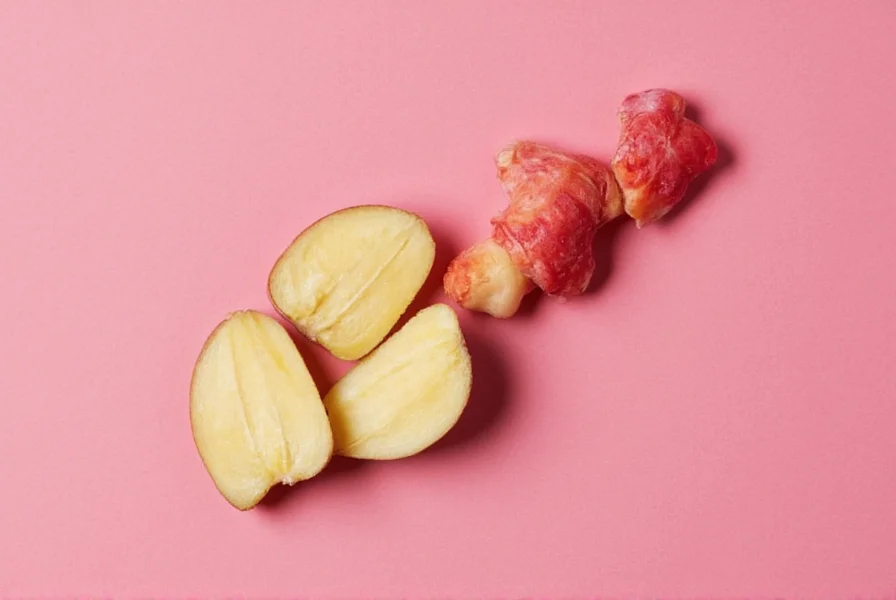Ginger is widely celebrated for its digestive benefits and anti-inflammatory properties, but this popular spice isn't appropriate for everyone. Understanding when not to take ginger is crucial for maintaining your health and preventing potentially dangerous interactions. This comprehensive guide outlines specific medical conditions, medications, and life stages where ginger consumption requires caution or should be avoided completely.
Medical Conditions Requiring Ginger Avoidance
Certain health conditions make ginger consumption potentially harmful. People with gallstones should exercise caution with ginger, as it stimulates bile production which can exacerbate symptoms. Those with bleeding disorders like hemophilia need to be particularly careful, as ginger's natural blood-thinning properties can increase bleeding risk and complicate medical management.
Individuals with diabetes must monitor ginger intake closely. While moderate ginger consumption may benefit blood sugar control, excessive amounts combined with diabetes medications can cause dangerously low blood sugar levels. Similarly, people with heart conditions, especially those with irregular heart rhythms, should consult their cardiologist before regular ginger use, as high doses may affect heart rhythm.

Critical Medication Interactions
Understanding ginger contraindications for blood thinners is essential for patient safety. Ginger contains compounds that naturally thin the blood, which when combined with medications like warfarin, aspirin, or clopidogrel, significantly increases bleeding risk. This interaction represents one of the most serious when to avoid ginger scenarios for medication users.
Is ginger safe before surgery? Medical professionals typically recommend stopping ginger supplements at least two weeks prior to any surgical procedure due to its blood-thinning effects. This precaution helps prevent excessive bleeding during and after surgery. Similarly, ginger interactions with diabetes medication require careful monitoring, as ginger may enhance the blood sugar-lowering effects of these drugs.
| Medication Category | Potential Interaction with Ginger | Recommended Action |
|---|---|---|
| Blood Thinners (Warfarin, Aspirin) | Increased bleeding risk | Avoid ginger supplements; limit dietary ginger |
| Diabetes Medications | Enhanced blood sugar lowering | Monitor blood sugar closely; consult doctor |
| High Blood Pressure Medications | Potential additive blood pressure lowering | Monitor blood pressure; discuss with physician |
| Antacids | May reduce ginger's effectiveness | Space ginger consumption 2 hours apart from antacids |
Pregnancy and Special Life Stages
When to avoid ginger during pregnancy is a common concern. While small amounts of ginger (up to 1g daily) are generally considered safe for nausea relief in pregnancy, higher doses or ginger supplements should be avoided, particularly during the first trimester. Some studies suggest high ginger intake might affect fetal development or increase miscarriage risk, though evidence remains inconclusive. Always consult your obstetrician before using ginger medicinally during pregnancy.
For breastfeeding mothers, moderate dietary ginger appears safe, but concentrated supplements lack sufficient research for definitive recommendations. Parents wondering if children can take ginger should know that while small amounts in food are generally safe, ginger supplements aren't recommended for children under 2 years, and older children should only use ginger under medical supervision.
Dosage Concerns and Overconsumption
How much ginger is too much? The recommended daily limit for adults is typically 4 grams of raw ginger or 1 gram of ginger supplements. Exceeding these amounts can cause side effects including heartburn, diarrhea, mouth irritation, and in severe cases, increased bleeding. People with sensitive digestive systems may experience discomfort even at lower doses.
Ginger overdose symptoms include excessive bleeding, dizziness, irregular heartbeat, and severe gastrointestinal distress. If you experience these symptoms after consuming large amounts of ginger, seek medical attention immediately. Those with ginger allergy should completely avoid all forms of ginger, as reactions can range from mild skin irritation to severe anaphylaxis.

When to Consult Your Healthcare Provider
Before incorporating ginger into your health regimen, discuss it with your healthcare provider if you have any chronic health conditions or take prescription medications. This is especially important if you're scheduled for surgery within the next few weeks or have a history of bleeding problems. Your doctor can help determine whether ginger is appropriate for your specific health situation and advise on safe consumption levels.
Be transparent with your healthcare provider about all supplements and herbal remedies you're using. Many people don't consider ginger a "medication" and fail to mention it during medical consultations, potentially missing critical interactions. Remember that natural doesn't always mean safe for everyone, and individual health circumstances dramatically affect whether ginger will be beneficial or harmful.











 浙公网安备
33010002000092号
浙公网安备
33010002000092号 浙B2-20120091-4
浙B2-20120091-4